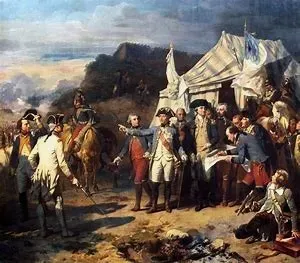3 Important Causes That Led to American Revolution
Table of Contents
In this post, 101 history facts discuss The American Revolution.
The
American Revolution was a political upheaval that took place between 1765
and 1783 during which colonists in the Thirteen American Colonies rejected
the British monarchy and aristocracy in favor of republicanism. American
revolutionaries were inspired by the liberal ideals of the Enlightenment,
the rights of man, natural law, and representative government. The
Revolution culminated in the adoption of the United States Constitution in
1787, which established a federal government that was not answerable to the
whims of a single ruler.

Causes For The American Revolution:
The primary causes of the American Revolution were the policies of the British government, particularly the imposition of taxes without the consent of the colonists, as well as the restrictions on colonial trade. These policies were designed to raise revenue for the British government and to assert its authority over the colonies. However, the colonists believed that these policies violated their rights as Englishmen.
The Stamp Act of 1765 was the first direct tax levied by the British government on the colonies and was the spark that ignited the American Revolution. The act required that all legal documents, newspapers, and pamphlets in the colonies be printed on stamped paper produced in London, bearing an embossed revenue stamp. The colonists vehemently opposed the tax, arguing that it was a violation of their rights as Englishmen to be taxed without their consent.
The Townshend Acts of 1767 imposed duties on a number of imported goods, including glass, Lead, paint, paper, and tea. These items were essential to the colonists, and the taxes made them very expensive. The Townshend Acts also established a new colonial government in America, headed by a royal governor who had the power to veto colonial laws.
The Boston Massacre of 1770 was a turning point in the American Revolution. The incident began as a street brawl between a group of rowdy colonists and a small detachment of British soldiers stationed in Boston. The soldiers opened fire on the crowd, killing five men. The Boston Massacre outraged the colonists and served as a rallying point for the Revolution.
The Boston Tea Party of 1773 was a direct response to the Tea Act, which had been passed by the British Parliament in an attempt to bail out the struggling East India Company. The act allowed the company to sell tea directly to the colonists without paying taxes, which made it cheaper than tea smuggled in from Holland. The colonists, however, saw the act as another example of taxation without representation and refused to buy the tea. On December 16, 1773, a group of colonists boarded three ships in Boston Harbor and dumped 342 chests of tea into the water.
The Intolerable Acts were a series of measures passed by the British Parliament in 1774 in response to the Boston Tea Party. The acts included the closure of Boston Harbor, the Massachusetts Government Act, which placed the colony under the control of the royal governor, and the Quartering Act, which required the colonists to provide food and lodging for British troops. The Intolerable Acts outraged the colonists and served as a rallying point for the Revolution.
The Declaration of Independence, adopted by the Second Continental Congress on July 4, 1776, was a statement of the colonists' grievances against the British government and a declaration of their intention to break away from the British Empire. The document listed a number of the colonists' grievances, including the imposition of taxes without their consent, the restriction of their trade, and the denial of their rights as Englishmen.

The American Revolution was a complex and multi-faceted conflict that was fought for a variety of reasons. The primary causes of the Revolution were the policies of the British government, particularly the imposition of taxes without the consent of the colonists, as well as the restrictions on colonial trade. However, the Revolution was also fueled by the colonists' belief in their rights as Englishmen and their desire for self-government.